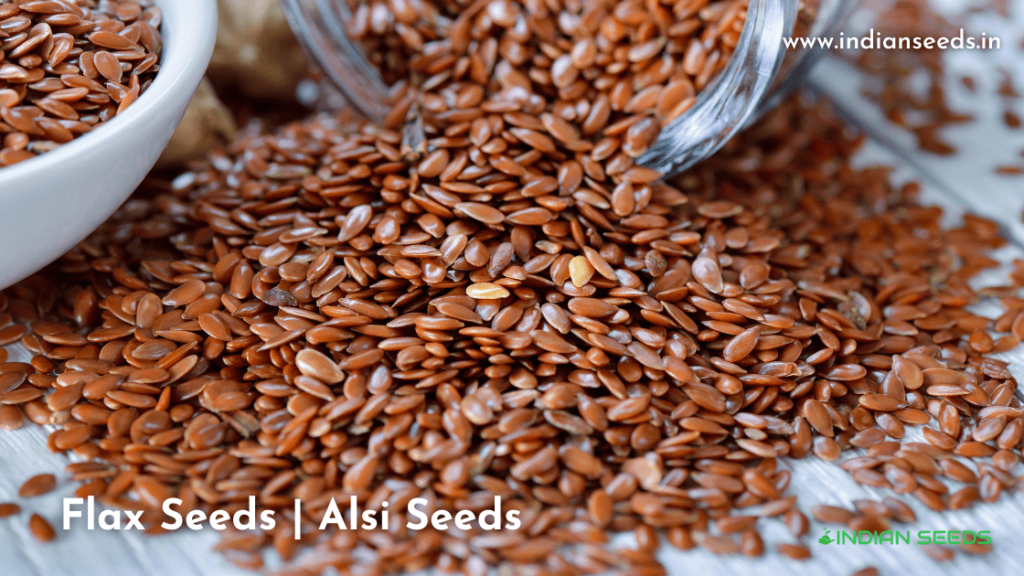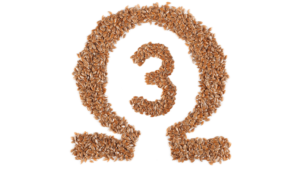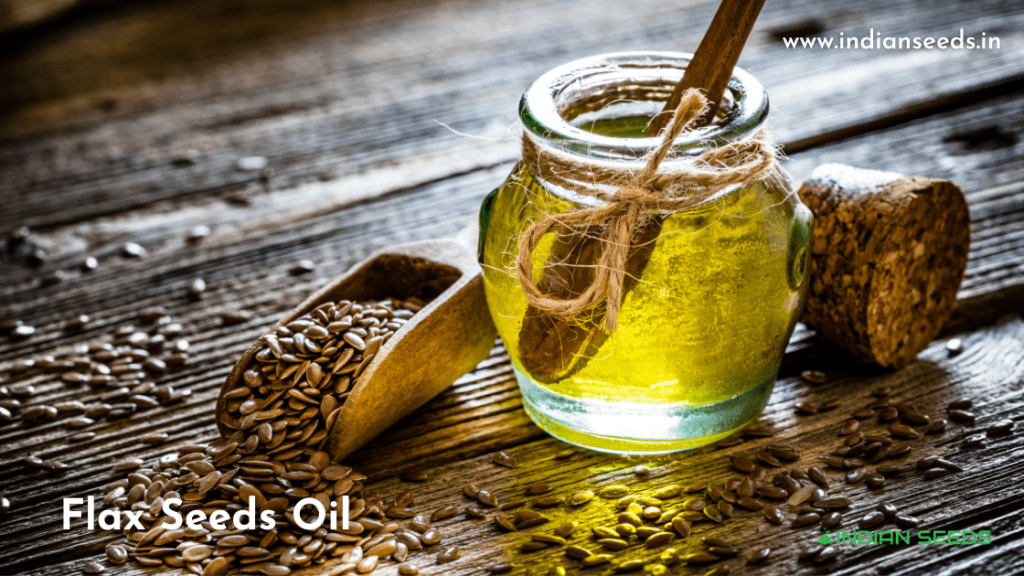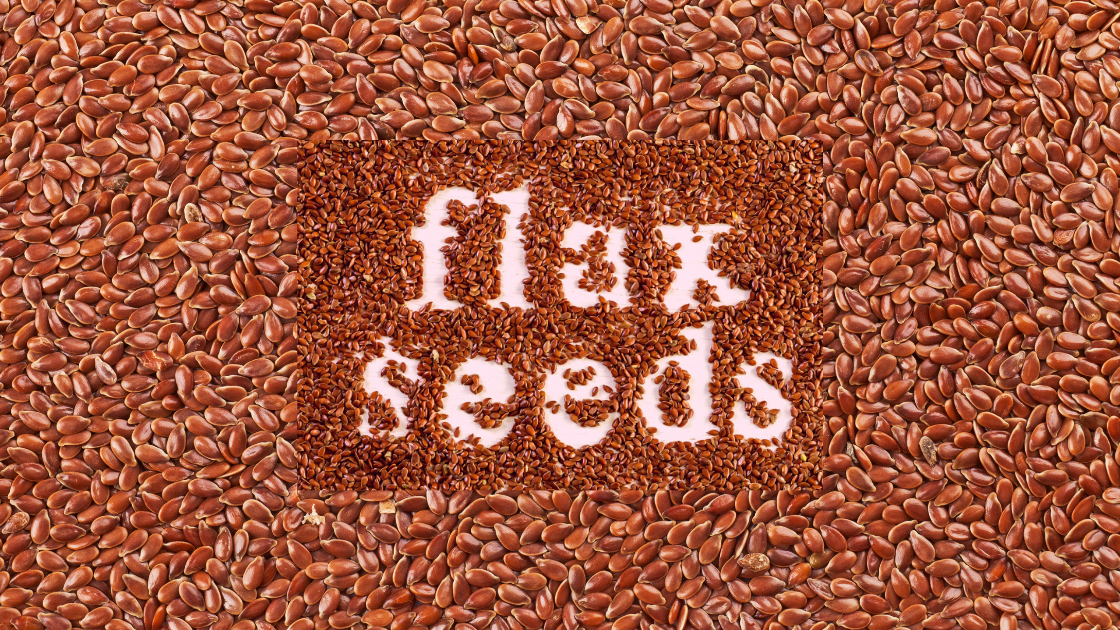Flaxseed popularly known as Alsi Seeds (अलसी के बीज) is a plant-based food that is high in fibre, antioxidants, and omega-3 fatty acids. It’s referred to as a “functional food” because of many flaxseeds benefits when consumed it improves one’s health.
Flax was a crop grown in ancient Egypt and China. It has been used in Ayurvedic treatment in Asia for thousands of years.
Flaxseed is now accessible in a variety of forms, including seeds, oils, powder, pills, capsules, and flour. It’s used as a dietary supplement to help people avoid constipation, diabetes, high cholesterol, heart disease, cancer, and a variety of other ailments.
Lignans, antioxidants, fibre, protein, and polyunsaturated fatty acids like alpha-linolenic acid (ALA), or omega-3, are all found in flaxseed. These nutrients may assist to reduce the risk of a variety of diseases.

What are Flax Seeds?
The flaxseed plant (also known as Linum usitatissimum) grows to reach about 2 feet tall and produces flaxseed. It was most likely first planted in Egypt, although it is now grown all over the world.
The nutty-flavored seeds can be consumed whole or crushed and cold-pressed to extract flaxseed oil. Flaxseed (also known as linseed) has been widely utilised in foods such as cereal and bread for decades.
However, in the last decade or two, it has carved out a place in the health food world. People are becoming more aware of the crop’s numerous health benefits, and there is now a range of ways to consume it, whether as a supplement or as an ingredient in a range of cuisines.
You might have even noticed that flaxseed has been added to your pet’s meal.
| Flax seeds in Hindi | Alsi Seeds (अलसी के बीज) |
| Flax seeds in Tamil | Alicia Seeds (அலிசி விதை) |
| Flax seeds in Telugu | Avise Ginjalu (అవిసె గింజలు) |
| Flax seeds in Marathi | आळशी |
| Flax seeds in Kannada | ಅಗಸೆ ಬೀಜಗಳು |
| Flax seeds in Malayalam | Cheruchana Vithu (ചെറുചണ വിത്ത്) |
Flax Seeds Nutrients
Two tablespoons of crushed flaxseed per day will provide roughly 20% to 25% of your fibre requirements.
- 3.6 g omega-3S from plants
- Calorie count: 75
- Protein content: 2.6 grammes
- Carbs (four grammes) (mostly fibre)
- 6 g of Saturated Fat
Flax Seeds Protein Content
Flax seeds have a protein content of 18%. They have a similar amino acid composition as those found in soybeans.
Despite the fact that they contain necessary amino acids, they lack the amino acid lysine.
As a result, they’re classified as incomplete protein.
Nonetheless, flax seeds are high in the amino acids arginine and glutamine, which are both beneficial to the heart and immune system.
Flax Seeds Fat Content
Flax seeds contain 42% fat, with 4.3 gram per tablespoon (10 gram).
The following fats make up this fat content:
Polyunsaturated fatty acids, such as omega-6 fatty acids and omega-3 fatty acid alpha-linolenic acid, account for 73% of the total fat content (ALA)
Monounsaturated and saturated fatty acids account for 27% of the total.
Flax seeds are one of the best sources of ALA in the diet. Chia seeds are the only thing that can beat them.
Because ALA is an important fatty acid, your body cannot synthesise it. As a result, you must receive it through your diet.
The largest concentration of ALA is found in flaxseed oil, followed by milled seeds. Because the oil is packed up inside the fibrous structure of the seed, eating the seeds whole offers the least quantity of ALA.

Flax seeds have a lower omega-6 to omega-3 ratio than many other oil seeds due to their high amount of omega-3 fatty acids.
A lower omega-6 to omega-3 fatty acid ratio has been related to a lower risk of developing a variety of chronic disorders.
Flax seeds, on the other hand, do not contain as much omega-3 as fish oils.
Shop Flaxseeds
Flaxseed Benefits
Flax seeds in Weight Loss
Flax seeds could be beneficial in a weight-loss diet.
They contain soluble fibre, which when mixed with water becomes extremely sticky.
This fibre has been demonstrated to help decrease hunger and cravings, which could lead to weight loss.

Flax seeds help weight loss in overweight and obese persons, according to a review of controlled research. When compared to the control group, those who added the seeds to their diet dropped an average of 2.2 pounds (1 kg).
Weight reduction was also found to be larger in studies lasting longer than 12 weeks and among those who consumed more than 30 grammes of flax seeds per day, according to the findings.
Flax seeds benefits for Hair
Flaxseed aids in the nourishing of the scalp and hair strands due to the presence of vitamin E, vitamin B, magnesium, manganese, selenium, and copper, among other nutrients.
Hair regrowth is aided by omega-3, while hair suppleness is improved by fibres and protein. If your hair is dry, frizzy, and unmanageable, try applying a generous coating of flaxseed gel or mask once a week, and massage flaxseed oil on your scalp before washing to increase blood circulation.
The hair receives plentiful nourishment when the flaxseed gel, hair oil, or hair mask is applied to the scalp and hair strands, promoting hair development and improving hair health.
Flaxseed hair oil and hair gel are simple to make at home, and their natural goodness will aid in the absorption of key nutrients while also locking in hydration and moisture.

Flaxseed Skin benefits
Flaxseeds are great for your skin!
Flaxseed oils help feed the skin, balance oil production, enhance the skin barrier, and supply much-needed nutrients that are often stripped away by harsh cleansers and over-exfoliation when applied topically.
The seeds themselves restore vitamins and minerals in the skin, giving it a healthy glow.
Here are a few ways to improve skin health by applying flaxseed topically:
- Acne prevention
- Skin inflammation is relieved.
- Fine lines are smoothed out.
- Provides a healthy glow to the skin
Flaxseed for Constipation
Constipation and diarrhoea cause a lot of discomforts and can even be dangerous to your health.
Chronic diarrhoea affects around 2–7% of people in the United States, whereas recurring constipation affects 12–19% of the population. In Europe, the rate of constipation can reach as high as 27%, with women having twice the risk of males.
Flax seeds have been shown to prevent both diarrhoea and constipation in several trials.
Flax seeds’ insoluble fibre bulks up your digestive waste, functioning as a laxative and easing constipation.
In your digestive track, soluble fibre is also thought to bind to water. This causes it to enlarge and thicken up your faeces, which prevents diarrhoea.
Flax Seeds for Women's Health
Flaxseed is exceptionally effective for women. It’s been shown to improve women’s fertility by increasing their odds of getting conceived. Flax seeds also aid in the regulation of ovulation and the restoration of hormonal equilibrium. It also reduces the risk of cardiovascular disease in postmenopausal women.
How to eat Flax Seeds? | Flaxseed Diet

- Roughly grind it and drink plenty of water while doing so.
- It’s great in cereals, shakes, and smoothies.
- It’s a great addition to handmade cookies.
- Toss a few into salads.
Flaxseed amount per Day
Recommend a daily amount:
To get the most benefits, 2 tablespoons of ground flaxseed per day is suggested. The average adult should ingest 25–40 grammes of fibre each day.
Women who are pregnant or breastfeeding should consult their doctors before including it in their diet.
Few side effects of Flax seeds
- Allergic Reactions: If you feel any itching, swelling, redness, or hives, stop eating Flax seeds. Vomiting and nausea could also be signs of an allergic reaction.
- Avoid when trying to conceive: Flaxseeds have estrogen-like properties, which means they may disrupt your body’s hormonal balance. It may also cause alterations in the menstrual cycle in some cases.
- Eat always with water: Because flax seeds are high in fibre, they can induce intestinal blockages and obstructions if consumed without enough liquid.
Flaxseed plant and Gardening
Flaxseeds are great for your skin!
Flaxseed oils help feed the skin, balance oil production, enhance the skin barrier, and supply much-needed nutrients that are often stripped away by harsh cleansers and over-exfoliation when applied topically.
The seeds themselves restore vitamins and minerals in the skin, giving it a healthy glow.
Here are a few ways to improve skin health by applying flaxseed topically:
- Acne prevention
- Skin inflammation is relieved.
- Fine lines are smoothed out.
- Provides a healthy glow to the skin
THE BOTTOM LINE
Flaxseeds are one of the most nutritious seeds we can eat. It aids in blood sugar regulation, digestion, and so forth. If you want to reduce weight, you must include this in your diet. Eating the correct kinds of healthful foods can help you manage all of your health problems. Aside from eating well and exercising regularly, you should have a full-body exam on a regular basis to keep track of your health.




















